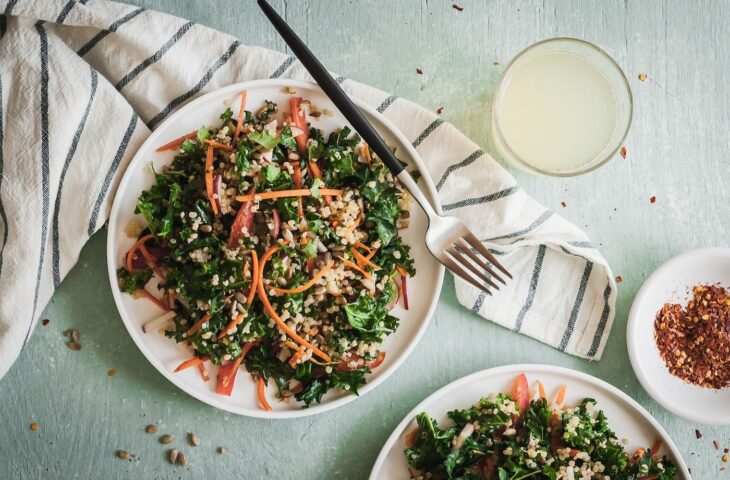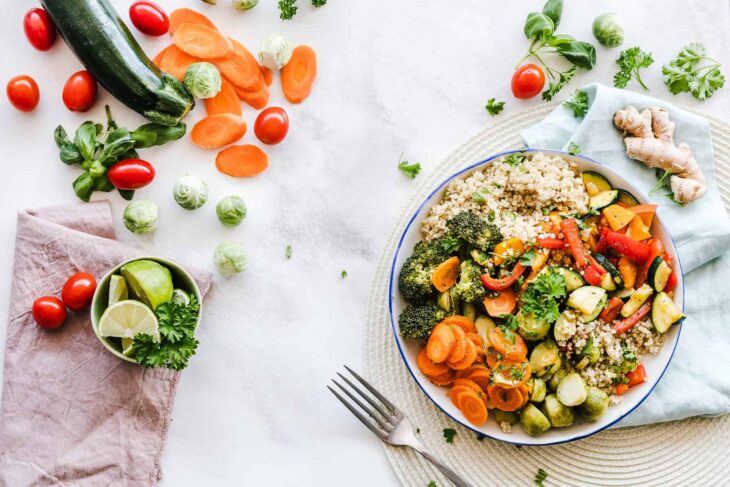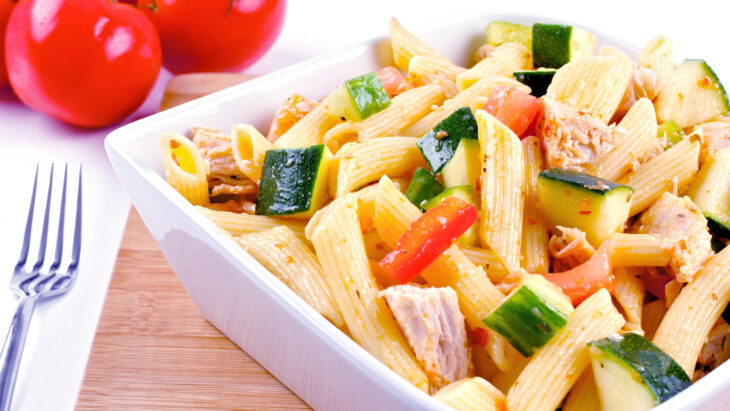Weight loss is usually associated with certain restrictions on food. Every diet has its own rules and requirements. For example, the keto diet is a low-carb diet, it minimizes the intake of foods rich in carbohydrates; the gluten-free diet forbids the consumption of products that have gluten; a mono-diets may ban all the products except for one which it is focused on. The latter may cause a lot of harm to your body and health, so it is better to avoid such diets. Another variant is a reduction of all the unhealthy foods, which is usually supported by the nutritionists. However, what if you could eat anything you want every day – sweets, junk food, bakery, and still not gain a single pound? If you find it perfect, then you might be interested in more info on the OMAD diet.
Contents
What is the OMAD diet?

Source: wellandgood
The OMAD diet is one meal per day plan and is very similar to fasting. The main idea of this diet is to eat once a day, during a “1-hour window”, usually on lunch. You are allowed to eat whatever you like, whether it’s something “unhealthy”, like pizza, doughnuts, French fries, and coke, or something filled with vital nutrients, like vegetable salad, fish soup, yogurt, and green tea. Of course, if you want to reach a better result, the second variant is much better.
The OMAD diet food recommendations

Source: medium
As this one meal is your only source of food intake, try to make sure that it is packed with vital nutrients, such as vitamins and minerals. Another greatly efficient in the weight loss food component is protein, which should also be included in your plan. It adds to your metabolism, sustains the feeling of satiation, which on this diet is your salvation, and preserves muscle mass. Fiber-rich foods can also be a great addition to your meal. Like protein, fiber also promotes longer satiation and healthy digestion processes.
Benefits of the OMAD diet

Source: medium
As fasting is proven to have a lot of health benefits, and this diet plan is somewhat similar to it, consumption of only one meal a day may have the following benefits:
-
Promotes cell elasticity
Long-term fasting makes your cells more elastic, as a result of a process called hormesis. It uses stresses to strengthens your body.
-
Slows down aging
One meal a day may cause autophagy – a detox effect, which cleanses away waste and toxins. It also may prevent the occurrence of Alzheimer’s and Parkinson’s diseases.
-
Improves your metabolism
The OMAD diet may boost your metabolism and make your body burn fat longer. It reduces blood sugar levels and therefore may help you lower the risk of diabetes and obesity.
-
Requires less planning and preparation
This diet may be very easy to plan if you are not concerned about your nutrient and calorie intake and eat whatever you feel like eating. Planning only one meal a day is a lot easier than planing the 3-meals course. Likewise, the preparation of one meal takes less time, effort, and money.
Risks of the OMAD diet

Source: today
As good as it sounds, the OMAD diet eventually may not be that healthy. Especially if you don’t follow the food recommendations and choose to eat unhealthy food. Such type of dieting surely is not for everyone and has the following health risks:
-
Increased cholesterol level
Fasting is linked to an increase in “bad” cholesterol – LDL, which in turn can cause other health conditions.
-
Nutrient deficiency
It’s a very ill-balanced diet. Although it is said that you can eat whatever you want, and it doesn’t necessarily have to be unhealthy foods, you still are unlikely to fit all the vital nutrients in only one meal a day.
-
Slow metabolism
Studies show that the more you are restricting your food consumption and, therefore, body in such a way, the more you slow your metabolism down what eventually causes weight gain.
How to survive on the OMAD diet?

Source: goodhousekeeping
Following the rules of the OMAD diet is certainly not an easy task. However, the following tips may make this process a bit more effective and easier:
Take your time
The fact that you have only one hour for your meal doesn’t mean that you have to gulp down as much as you can with the lightning speed. Take your time and try to feel what you eat with your every sense. Smell it, look at it, taste it, you will be more satisfied with your meal when you really pay attention to eating eat. Another benefit of that is better digestion. When you eat slowly, your body has more time to make sure everything is going as planned, reducing the chance of bloating, gasses, and indigestion.
Don’t be afraid to loosen a bit
If you feel like you are going to snap, don’t worry and don’t give up. It is only natural that you may feel sudden strong hunger when you are eating only once a day, especially in the beginning, when your body is not used to such a regime and experiences great stress. In order to not break your fast, avoid eating junk food, sweets, or bakery. If you are starving you can have a small healthy snack. If it is not enough, then prepare a full meal, but make sure that it is healthy, as low in carbs and calories as possible, and is filled to the brim with vital nutrients. Just try not to turn it into a habit on this diet. Although implementing such a practice in your usual nutritional routine is highly recommended by nutritionists.
Reduce your stress
Fasting is not a piece of cake. Your body will try to protest a sudden reduction in the consumption of food, which may result in an increased level of stress. You may be easily irritated or even aggressive when you feel hunger and can’t satisfy it. Try to elevate your stress with meditations or workouts. Yoga may be the perfect variant for you, as it includes both those methods and as a bonus adds to your general well-being, body awareness and control, flexibility, and even strength.

Source: goodhousekeeping
Conclusion
The OMAD Diet is not all weight loss and health benefits. Consuming only one meal a day may significantly harm your body, especially if you are not used to fasting. And the lack of vital nutrients can cause vitamin and mineral deficiencies, which may have different negative consequences, such as different health conditions, hair loss, worse skin, and others. There are lots of other diets and workouts, which can help you lose weight and improve your wellness effectively. However, before starting any diet, please, consult with a specialist.
Disclaimer
The article cannot and does not contain medical or health advice. This information is provided for general informational and educational purposes only and is not a substitute for professional advice. Accordingly, before taking any actions based upon such information, we encourage you to consult with the appropriate professionals. The use or reliance of any information contained in this article is solely at your own risk!
